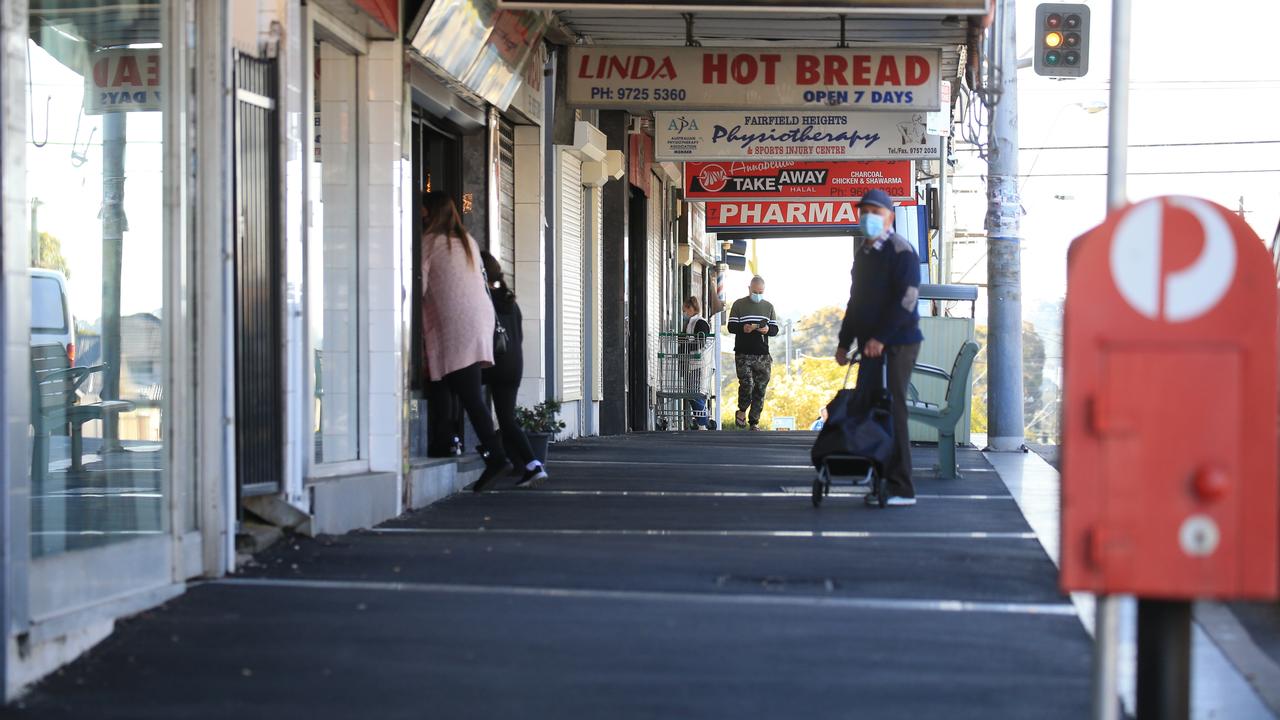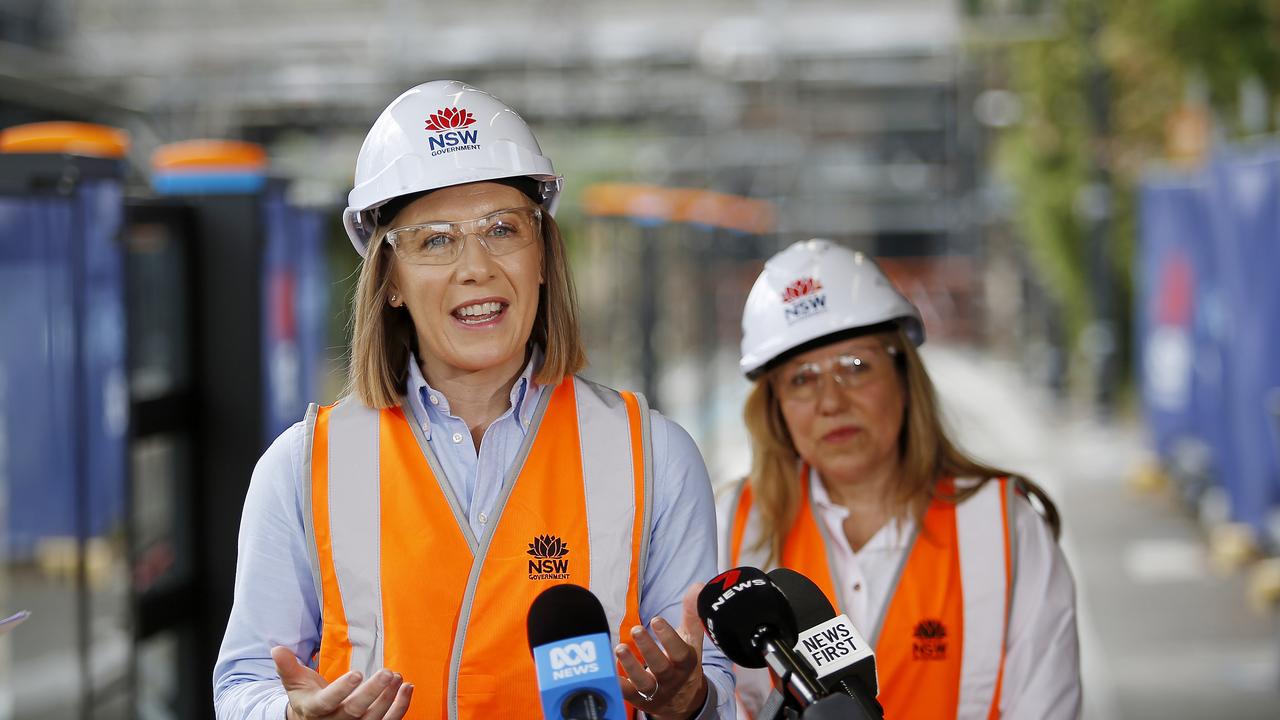Piers Akerman: Left proves they’re big bunch of burqas
NOTHING sums up the chaotic nature of the body politic better than Labor and Green senators uniting to give A-G George Brandis a standing ovation for his defence of the burqa.

Opinion
Don't miss out on the headlines from Opinion. Followed categories will be added to My News.
NOTHING sums up the chaotic nature of the body politic better than the vision of Labor and Green senators uniting on Thursday to give Attorney-General George Brandis a standing ovation for his incoherent defence of the burqa — that symbol of Islamist fundamentalist oppression.
Nor could there have been a better illustration of the ludicrous nature of his over-the- top emotional slap down of Pauline Hanson’s silly little stunt than the placement of The Daily Telegraph’s two-page coverage of the farce and the subsequent story about Moutia Elzahed, the wife of jailed terrorist recruiter Hamdi Alqudsi, accompanied by a photo of a burqa-clad figure — presumably Ms Elzahed.
Ms Elzahed was ordered to pay $250,000 in court costs in June after losing a civil suit against NSW police whom she claimed had assaulted her during a 2014 raid on her home.

She was subsequently charged with nine counts of disrespectful behaviour after refusing to stand as District Court Judge Audrey Balla entered the court during the civil hearing last November and December. She has pleaded not guilty and sought legal aid to represent her.
It is a fact that most Australians only see burqa-clad forms (who knows whether they are men or women?) when the television news features court cases involving alleged terrorists or their supporters. Ms Elzahed’s husband is serving a six-year sentence for assisting young Australian men to travel to Syria to join the brutally evil Islamist forces.
Further, the burqa is not a religious garment as Senator Brandis piously claimed. It is not a vestment, or a sacred robe. In those countries where it is mandated, it is a symbol of the suppression of women.
Will Senator Brandis get a standing ovation from Labor and the Greens should he support the Saudi Arabian ban on women driving cars, or travelling in public unchaperoned, and where do they stand on the alleged criminal activity of being alone with a male who is not a close relative?

The most recent study on Australians’ thoughts on face coverings was conducted in the Melbourne suburbs of Broadmeadows and Fawkner by RMIT associate professors Val Colic-Peisker and Karien Dekker in 2016-17 in partnership with the Islamic Council of Victoria, Moreland City Council and Hume City Council, Victoria. The researchers found that non-Muslim and Muslim locals were doubtful about the face covering (burqa or niqab).
“Most people disliked this form of religious attire and said they would prefer to see the face of a person they meet on the street or need to communicate with. Others mentioned that they expected the face covering referred to unequal gender relationships,” it found.
The study examined whether the religious visibility of Muslim residents had an impact on local community cohesion and what the researchers termed “Islamophobia”.
Perhaps contrary to the expectations of the Green and Labor luvvies who shriek about their fears of “Islamophobia” whenever an Islamist terrorist attacks a Western target as occurred in Barcelona on Friday, the researchers found that “visibly Muslim men were usually regarded by non-Muslims as standing out in one way or another but a vast majority had no problem with encountering visible Muslim men”.
One female respondent noted a lack of respect for elderly women by Muslim men. However, what the researchers thought particularly noteworthy was the distaste for facial coverings by Muslim and non-Muslim respondents alike.
“A standout element of the local attitude towards Muslim visibility in both suburbs was a widespread dislike, among non-Muslim, but also some Muslim respondents, of facial coverings worn by some Muslim women,” they said in their report.

Not only did they find that 47 per cent of their respondents agreed (including “strongly agreed”) with the statement “I dislike when women cover their face”, the researchers also thought they should comment that “we know that a considerable number of people expressed verbal dislike for the face covering but did not want to register such an attitude in the survey”.
“Therefore, in reality the dislike for face covering is likely to be stronger than what was shown by the survey data,” the report said. “It is interesting to note that a considerable number of Muslim respondents (28 per cent) commented about their dislike of face covering. This did not seem to be an expression of Islamophobia among either Muslim or non-Muslim respondents, but rather an expression of concern that the face covering precludes interaction of locals with ‘veiled’ Muslim women.
“There was a sense among the respondents, both Muslims and non-Muslims, that the face covering of Muslim women (niqab) was problematic. The unease about niqab had different sources and was articulated in different ways: in terms of uncertainty of the identity of the person; fear and unease, including feeling unsafe from terrorism; finding face covering culturally ‘confronting’; preventing communication with a person whose face is covered.”
RMIT is not known for its conservative politics yet this research supports the views of Pauline Hanson’s supporters, not those of the Greens, Labor or Senator Brandis.
As an Australian woman in her 30s commented to the researchers: “I find it quite daunting when I see somebody wearing something like that. I don’t mind the hijab (with) the face showing ... that doesn't worry me. But the full face covering does ... I think it’s because I can’t see their face.”
The report also quoted a Muslim man: “I reckon the burqa ... I reckon that’s a bit too much ... it can frighten some people ... it’s just fearful.”
The professors noted: “The quotes illustrate covering face was seen as a barrier that precludes intercultural mixing and therefore, by extension, Muslim — non-Muslim understanding.
“It was also seen as have a potential to limit successful integration and Muslims ‘becoming Australian’. For some respondents, it meant a denial of the equality of women with men,” they wrote.
And that’s what the idiots in the Senate stood and cheered.


